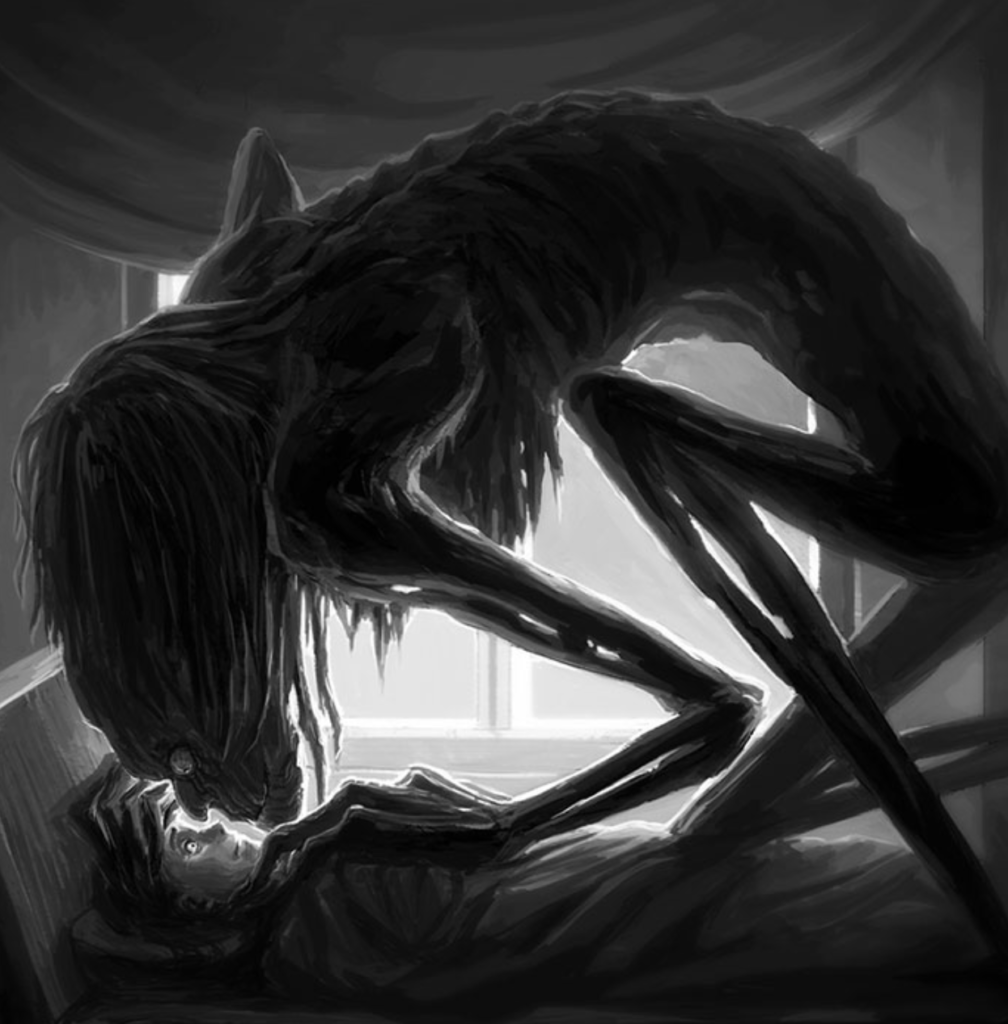What is sleep paralysis?
According to an article titled “Sleep paralysis – NHS,” it gives examples of what happens when you have sleep paralysis. For example it says you could be “awake but cannot move, speak or open your eyes, like someone is in your room, like something is pushing you down, frightened.” The article also talks about the causes which include “insomnia, disrupted sleeping patterns – for example, because of shift work or jet lag, narcolepsy – a long-term condition that causes a person to suddenly fall asleep, post-traumatic stress disorder (PTSD), generalized anxiety disorder, panic disorder, a family history of sleep paralysis.” You can also experience symptoms while it happens.
According to “Sleep Paralysis: What Is It, Causes, Symptoms and Prevention,” it describes specific things some people with sleep paralysis will experience. It states, “Paralysis in your limbs, inability to speak, sense of suffocation, hallucinations, fear, panic, helplessness, tightening around your throat, daytime sleepiness, which may be a sign of narcolepsy.” It’s common when some people tend to say that they see some sort of demons or ghosts while experiencing it. Some people usually describe it as being scary or supernatural beings; it’s like having hallucinations. But according to “The neuropharmacology of sleep paralysis hallucinations: serotonin 2A activation and a novel therapeutic drug,” it says that the sleep paralysis hallucinations feel “dream-like” and are interpreted as a dream.
But a good thing is that there are some ways that people who have or experience it are able to prevent having those episodes. According to Harvard Health, you should:
- Get adequate sleep. Try to get seven to nine hours of sleep per night on a regular basis.
- Keep a consistent sleep schedule.
- Go to bed and wake up at consistent times every day, including on weekends.
- Create an ideal sleep environment. Keep your bedroom dark, cool, and quiet.
- Ensure your mattress and pillow suit your body’s needs. Choose a pillow that keeps your neck and head naturally in alignment. Your mattress needs will depend on the level of firmness that feels best to your body. Memory foam mattresses boast the benefit of molding to your body’s pressure points.
- Reduce distractions. Avoid using electronic devices before going to bed. Relax before bed by taking a bath, reading, or listening to soothing music.
- Try new sleeping positions if you sleep on your back. Sleep experts have found a correlation between sleeping on your back and sleep paralysis. Do what you can to ease stress in your life, especially just before bedtime.
- Curb substance use: avoid alcohol intake, especially in the evening, and steer clear of nicotine altogether.
- And reduce caffeine intake. If you can’t or don’t want to give up caffeine, avoid it after 2 p.m.”
These prevention tips come from an article called “Sleep paralysis: Causes, symptoms, and treatments – Harvard Health.”
In the end, having or experiencing sleep paralysis won’t have any life threatening things towards you. But it can cause anxiety.













Cintia Solano • Oct 21, 2024 at 12:55 pm
I learned that sleep paralysis causes you to be awake but you cant move or talk.
Paulette Fernandez • Oct 21, 2024 at 12:53 pm
What I learned was that even if you’re awake you are unable to do normal things like any sort of movement or talk like if you’re still sleeping but you’re awake.
Belen • Oct 21, 2024 at 12:44 pm
What I learned is that when your asleep you experience physical touch like while “dreaming” causing you unable to move, talk, and open your eyes.
Allen • Oct 18, 2024 at 10:22 am
I learned that during sleep paralysis you can be awake but you can’t talk or move any type of way.